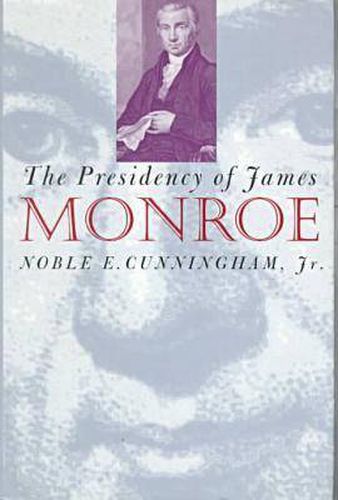Readings Newsletter
Become a Readings Member to make your shopping experience even easier.
Sign in or sign up for free!
You’re not far away from qualifying for FREE standard shipping within Australia
You’ve qualified for FREE standard shipping within Australia
The cart is loading…






This title is printed to order. This book may have been self-published. If so, we cannot guarantee the quality of the content. In the main most books will have gone through the editing process however some may not. We therefore suggest that you be aware of this before ordering this book. If in doubt check either the author or publisher’s details as we are unable to accept any returns unless they are faulty. Please contact us if you have any questions.
Noble Cunningham’s history of the fifth presidency (1817-25) shows a young nation beset by growing pains and led by a cautious politician who had neither the learning nor the intellect of Jefferson or Madison, but whose actions strengthened both the United States and the presidency itself. Cunningham makes clear that the mislabelled
era of good feelings
had more than its fair share of crises, including those resulting from revolutions in Latin America, Spanish possession of Florida, the depression of 1819, and the controversy over slavery in Missouri. Monroe, he shows, successfully defused these potentially explosive situations, most notably by negotiating the 1820 Missouri Compromise and announcing in 1823 what became to be known as the Monroe Doctrine, a document that still guides American policy in the western hemisphere. Cunningham effectively places these actions within the context of Monroe’s life and times and sheds new light on the inner workings of his cabinet and his relations with Congress. In addition, he features the prominent roles of two future presidents: John Quincy Adams as secretary of state and Andrew Jackson as the controversial general whose actions in the Seminole War created a headache for the administration. Though substantially informed by previous scholarship, Cunningham writes largely from the abundant primary source materials of the era to provide a fresh look at a president and a nation on the brink of greatness.
$9.00 standard shipping within Australia
FREE standard shipping within Australia for orders over $100.00
Express & International shipping calculated at checkout
This title is printed to order. This book may have been self-published. If so, we cannot guarantee the quality of the content. In the main most books will have gone through the editing process however some may not. We therefore suggest that you be aware of this before ordering this book. If in doubt check either the author or publisher’s details as we are unable to accept any returns unless they are faulty. Please contact us if you have any questions.
Noble Cunningham’s history of the fifth presidency (1817-25) shows a young nation beset by growing pains and led by a cautious politician who had neither the learning nor the intellect of Jefferson or Madison, but whose actions strengthened both the United States and the presidency itself. Cunningham makes clear that the mislabelled
era of good feelings
had more than its fair share of crises, including those resulting from revolutions in Latin America, Spanish possession of Florida, the depression of 1819, and the controversy over slavery in Missouri. Monroe, he shows, successfully defused these potentially explosive situations, most notably by negotiating the 1820 Missouri Compromise and announcing in 1823 what became to be known as the Monroe Doctrine, a document that still guides American policy in the western hemisphere. Cunningham effectively places these actions within the context of Monroe’s life and times and sheds new light on the inner workings of his cabinet and his relations with Congress. In addition, he features the prominent roles of two future presidents: John Quincy Adams as secretary of state and Andrew Jackson as the controversial general whose actions in the Seminole War created a headache for the administration. Though substantially informed by previous scholarship, Cunningham writes largely from the abundant primary source materials of the era to provide a fresh look at a president and a nation on the brink of greatness.